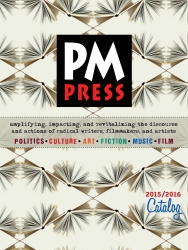NYPD Discovers Trove of Spying Records Just Days After Historic Public Comment Period Ends
Last week, the Municipal Archive of New York City found over one million “lost” pages—more than 520 boxes—documenting the New York Police Department’s (NYPD) surveillance and infiltration of political groups during the 1960s and 70s.
Notably, the discovery comes just days after the federal court closed a rare comment period linked to a decades-old class-action lawsuit challenging the spying operations of the NYPD.
The unlawful monitoring of organizations like the Young Lords, the Black Panther Party, the Nation of Islam, and antiwar groups in New York City was at the heart of Handschu v. Special Services Division, a lawsuit filed by several political groups in 1971.
The Handschu lawsuit resulted in a 1985 consent decree and a set of guidelines that to this day limit the NYPD’s surveillance and infiltration activity. In an effort to impose public accountability, the Handschu Guidelines included an oversight body with a civilian representative.
At the time of the original settlement, federal Judge Charles Haight ruled that the NYPD records resulting from years of surveillance and infiltration must not be destroyed without the “express approval of the City’s commissioner of records and information services.”
In 2003, the city successfully petitioned the court to relax the guidelines and eliminate its oversight body, the Handschu Authority.
In 2013, after the Associated Press published its award-winning coverage of the vast NYPD’s spying effort, Muslim residents and organizations filed a lawsuit, Raza v. City of New York. The Handcshu case was also re-opened at that time.
It was during this legal battle, in 2014, that Baruch College professor Johanna Fernández, who was researching the history of the Young Lords, filed her own lawsuit seeking the NYPD records that gave rise to the original Handschu case.
Then, earlier this year, the city agreed to a settlement with plaintiffs in the Raza and Handschu cases and Judge Haight initiated a months-long comment period, inviting New York City residents and visitors to provide feedback to the court on whether the settlement agreement was adequate to prevent future NYPD abuse.
But, the historical Handschu records were still missing, according to the city.
In May, while the Handschu comment period was in effect, New York County Supreme Court Judge Alice Schlesinger dismissed the case brought by Fernández, stating that she would not order the city to “go to all sorts of extremely burdensome lengths without any real hope or expectation that these documents will be found.”
Remarkably, just two weeks after the federal court hearing on the settlement agreement in Raza and Handschu, and after the comment period was officially closed by Judge Haight, the NYPD discovered the hundreds of boxes of records in a “routine” search of one of the city’s warehouses.
How could those records have informed the public’s opinion about the NYPD and its spying operations? Would the details of years of abusive and politically-motivated spying have changed the opinion of New Yorkers toward how we restrict such activities today?
And, what about the records generated on individuals, specifically Muslims, from years of unlawful spying by the NYPD Demographics Unit which resulted in the Raza lawsuit? Since the recent settlement agreement was silent on what should happen to those records, will they be destroyed or kept for the NYPD to use?
Furthermore, will those records be available and accessible to the public? The latest attempts to obtain even a fraction of those records was met with resistance by the NYPD and the courts have so far sided with the police.
Meanwhile, the NYPD wants to maintain a “terrorist registry” without public scrutiny of who is put on such a list or how someone gets on or off of it.
This latest posturing by the NYPD and the unanswered questions on the retention and use of personal records unfortunately does not bode well for Muslims and political activists in New York City.
Kris Hermes is a longtime activist, legal worker, and author of Crashing the Party: Legacies and Lessons from the RNC 2000. He currently works as the Mass Defense Coordinator for the National Lawyers Guild.




